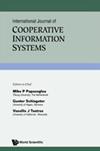基于组件的测试用例生成和优先级排序使用改进的遗传算法
IF 0.8
4区 计算机科学
Q4 COMPUTER SCIENCE, INFORMATION SYSTEMS
International Journal of Cooperative Information Systems
Pub Date : 2023-08-17
DOI:10.1142/s021884302350017x
引用次数: 0
摘要
开发测试用例是软件测试过程中最具挑战性和关键的一步。由于测试场景多,测试效果差,必须使用强大的优化技术对初始测试数据进行优化。测试优先级对于在时间和金钱方面预算有限的生产线上测试开发的软件产品至关重要。为了对一个或多个软件产品的测试用例场景进行优先级排序,有必要充分了解成本(如所需的时间和资源)和效率(如组件覆盖率)之间的权衡。因此,本文提出了一种在基于组件的软件开发(CSD)中使用改进遗传算法(MTCG-IGA)的高效多目标测试用例生成和优先级排序方法。已经采用了一种基于随机搜索的方法来创建多目标测试并对其进行优先级排序,该方法利用了许多成本和有效性标准。具体而言,多目标优化包括最大化测试用例的优先级范围(PR)、特征的成对覆盖(PCC)、故障查找能力(FFC)和最小化总实施成本(TIC)。对于这个测试优先级问题,使用成本效益指标构建了一个独特的适应度函数。IGA是一种稳健的搜索技术,在解决具有挑战性的问题方面表现出优异的优势和显著的功效,包括充足的空间、多峰值、随机和通用优化。基于IGA的使用,本文对目标函数进行了分类、计算,引入了非支配排序遗传算法II(NSGA-II)方法,评估了每个分支在处理路径上的接近度,并对路径集进行了排列以获得最佳答案。结果表明,在测试用例(平均值195.2)、PCC(平均得分0.7828)和FFC(平均得分0.8136)的优先级方面,所提出的带有NSGA-II的MTCG-IGA比其他基线算法表现最好。本文章由计算机程序翻译,如有差异,请以英文原文为准。
Component-Based Test Case Generation and Prioritization Using an Improved Genetic Algorithm
Developing test cases is the most challenging and crucial step in the software testing process. The initial test data must be optimized using a strong optimization technique due to many testing scenarios and poor testing effectiveness. Test prioritization is essential for testing the developed software products in a production line with a restricted budget in terms of time and money. A good understanding of the trade-off between costs (e.g. time and resources needed) and efficiency (e.g. component coverage) is necessary to prioritize test case scenarios for one or more software products. So, this paper proposes an efficient Multi-objective Test Case Generation and Prioritization using an Improved Genetic Algorithm (MTCGP-IGA) in Component-based Software Development (CSD). A random search-based method for creating and prioritizing multi-objective tests has been employed utilizing numerous cost and efficacy criteria. Specifically, the multi-objective optimization comprises maximizing the Prioritized Range of test cases (PR), Pairwise Coverage of Characteristics (PCC), Fault-Finding Capability (FFC), and minimizing Total Implementation Cost (TIC). For this test prioritizing problem, a unique fitness function is constructed with cost-effectiveness metrics. IGA is a robust search technique that exhibits excellent benefits and significant efficacy in resolving challenging issues, including ample space, multiple-peak, stochastic, and universal optimization. Relying on the use of IGA, this paper classifies, computes the objective function, introduces the Nondominated Sorting Genetic Algorithm-II (NSGA-II) method, evaluates each branch’s proximity on the handling route, and arranges the path set to get the best answer. The outcomes demonstrate that the proposed MTCGP-IGA with NSGA-II performed the best than other baseline algorithms in terms of prioritizing the test cases (mean value of 195.2), PCC (mean score of 0.7828), and FFC (mean score of 0.8136).
求助全文
通过发布文献求助,成功后即可免费获取论文全文。
去求助
来源期刊

International Journal of Cooperative Information Systems
工程技术-计算机:信息系统
CiteScore
2.30
自引率
0.00%
发文量
8
审稿时长
>12 weeks
期刊介绍:
The paradigm for the next generation of information systems (ISs) will involve large numbers of ISs distributed over large, complex computer/communication networks. Such ISs will manage or have access to large amounts of information and computing services and will interoperate as required. These support individual or collaborative human work. Communication among component systems will be done using protocols that range from conventional ones to those based on distributed AI. We call such next generation ISs Cooperative Information Systems (CIS).
The International Journal of Cooperative Information Systems (IJCIS) addresses the intricacies of cooperative work in the framework of distributed interoperable information systems. It provides a forum for the presentation and dissemination of research covering all aspects of CIS design, requirements, functionality, implementation, deployment, and evolution.
 求助内容:
求助内容: 应助结果提醒方式:
应助结果提醒方式:


